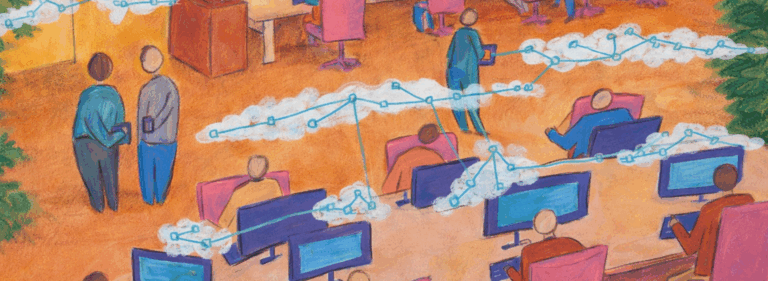Creating real-world data trusts: progress so far and the path ahead

The development of trustworthy AI is central to the mission of the Global Partnership on AI (GPAI). Creating these technologies requires access to data, and deploying AI in the service of society requires data stewardship strategies that address important issues relating to who shares data, for what purpose, and in whose interests. With the aim of advancing the responsible adoption of AI, GPAI’s Data Governance Working Group investigates how different data governance interventions can align the development of AI technologies with societal interests. Its first project – introduced on this blog previously – focuses on the contribution that data trusts can make to such data stewardship.
Policymakers, researchers, and practitioners are increasingly interested in the role that data trusts could play in unlocking data-enabled innovation while managing concerns about the harms associated with data use. By providing a framework that encourages data use within boundaries set by citizen- or societal-interests, data trusts offer an approach to data stewardship that focuses on empowering individuals and communities. GPAI’s Enabling data sharing for social benefit through data trusts project aims to help translate the excitement surrounding data trusts into practice, building shared understandings of the contribution they make to data stewardship and the strategies that can support their real-world implementation.
We’re delighted today to be publishing the first outputs from this project, produced by the Aapti Institute and Open Data Institute (ODI). A survey of current data trust projects by the ODI and Aapti Institute collates experiences from 45 practitioners and researchers engaged in the development of new data stewardship strategies. This presents their experiences of delivering the functions of data trusts, and the operational strategies that support bottom-up empowerment. A review of legal frameworks by the Aapti Institute synthesises recent legal and policy developments surrounding data trusts. This compares the experiences of 11 different jurisdictions, exploring how different policy levers contribute to data stewardship.
Together, these reviews demonstrate both the progress that has been made in establishing data trusts as a form of bottom-up data stewardship and the distance still to travel to operationalise the vision that underpins their development. They show that a community of research and practice is already growing around data trusts, with the aim of empowering individuals and communities in decisions about data use and creating a future where increased data use leads to greater public benefits. They also point to both growing consensus around the contribution that data trusts can make to data stewardship, as explored in GPAI’s statement earlier this year, and the diversity of working practices that are being used to operationalise this contribution.
These reports also point to some of the issues associated with building data institutions that empower individuals and communities. Delivering the range of functions required from data trusts in practice is challenging, and the role of data trustees in enabling data stewardship requires further development. With trustees expected to play an important role in increasing accountability and enforcing safeguards around data use, this gap has implications for both how data trusts can work today, and how the field might develop in future. As the global data policy environment evolves, there are also important questions about how to implement the policy building blocks that can create an environment to support data trust development, including data rights and protections; data sharing policies; and institutional safeguards or mechanisms for accountability.
Across these reviews, a common theme is the significance of context in shaping the operational strategies and design choices available to those wishing to deploy data trusts to empower individuals and communities. Taking forward this theme, forthcoming outputs from this project will investigate what contribute data trusts could make to facilitating climate action through effective data stewardship and AI development.
Many people have been involved in the development of this work. We’d like to thank in particular the teams at the Open Data Institute and the Aapti Institute for all their hard work in putting this together; our Working Group Co-Chairs – Jeni Tennison and Maja Bogataj Jančič – and the wider membership for all their wisdom, guidance, and input; all the survey respondents for their contributions, and the CEIMIA team for their support throughout the project.
The next wave of data trust development will require close engagement between practitioners, researchers and policymakers to create the conditions in which data trusts benefit all in society. In support of this aim, GPAI will be continuing to explore how data trusts can serve society. Projects throughout 2022 will seek to support progress establishing data trusts to tackle issues of social concern, and we look forward to working with the data trust community in developing this work.
The Working Group will be hosting an event at the Alan Turing Institute’s annual conference, AI:UK, on March 23rd. This will include an update on the findings of the Working Group’s exploration of how data trusts could help address the climate crisis – we encourage you to register for the event here.



































